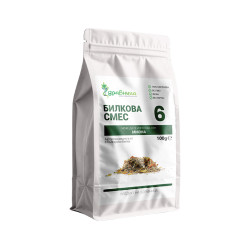Fibroids are benign tumors, the most common of all tumors in the female reproductive system.
The tumor varies widely in size - from a small - pea size to a large - human head size. It is characterized by slow growth. Accelerated growth and increase in fibroid density is suspicious for malignant tumor evolution. The frequency of available uterine bleeding is of the same importance.
Myomas are located in different places in the uterus - under the uterine lining, in the muscles, between the muscles and the lining of the uterus.
Causes:
The causes of fibroids are unknown. This tumor is thought to be caused by elevated levels of estrogen (female sex hormones). This explains the often observed cessation of tumor growth and even its reversal after menopause, when the ovaries no longer produce estrogen.
Symptoms:
During its initial development, the fibroid usually does not give complaints and is found accidentally during a preventive examination or examination on another occasion. Larger fibroids are also accompanied by complaints. Menstruation becomes more abundant, irregular uterine bleeding occurs. The amount of genital secretion is increased. Large myomas compress the surrounding organs and can cause constipation and urinary incontinence. More abundant and more frequent uterine bleeding causes anemia.
Patients complain of general fatigue, headache, tinnitus. Infertility often occurs. Severe complications include tumor disintegration, peritonitis, and malignant degeneration.
Questions and Answers:
1. Fibroids are neither a cancer nor a precancerous disease.
2. Fibroids are affected by hormones, but cannot be cured by hormones.
3. A fibroid is never an independent disease.
4. Having a fibroid is the rule rather than the exception.
5. Fibroids are still a disease - because of its complications.
6. If a woman suffers from chronic anemia, it may be due to fibroids.
7. Fibroids sometimes prevent pregnancy, more often interfere with pregnancy and childbirth. "Sometimes" and "more often" do not mean "always".
8. Fibroids worsen the quality of life.
9. Do not believe the aphorism "A uterus that does not give birth to children, gives birth to fibroids."
10. Medicine does not treat uterine fibroids, but women with uterine fibroids.
Folk medicine against fibroids:
10-15 stalks and flowers of the herb Asparagus officinalis are added to 750 ml of water. After 3-5 minutes strain. Drink 250 g 3 times a day (can be sweetened with a spoonful of honey) for 3 months. Dissolve 200-300 g of natural, Bulgarian clay with water to obtain a thick paste. The mixture is placed on gauze and applied to the abdomen (low - below). Leave the compress on for 3 hours. Repeat the procedure for 10 days.
Where to buy healthy products for fibroids?
Products for fibroids can be found in "Zdravnitza".
You can place your order online. We deliver to Bulgaria and Europe.
You can also buy the products from our local stores in Sofia, Bulgaria.











